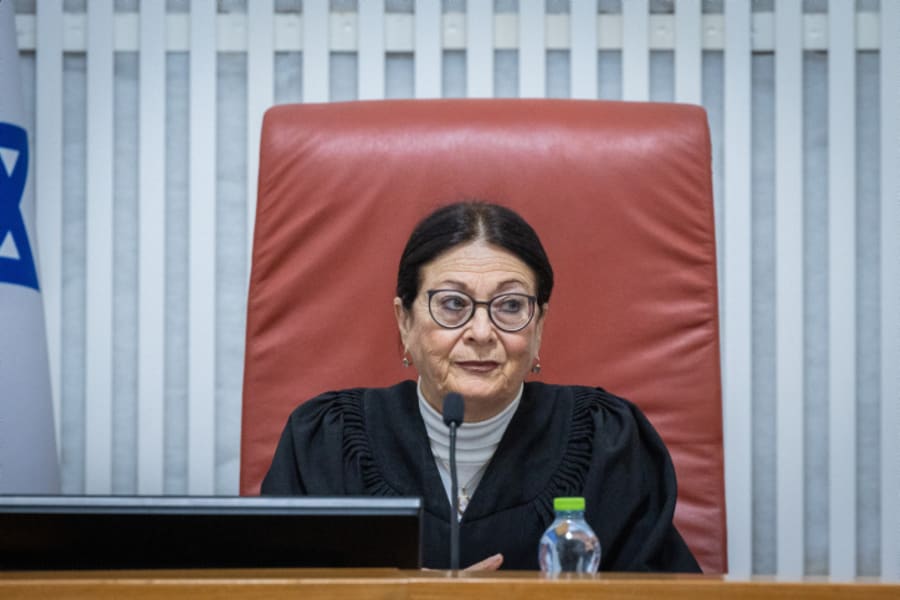Israeli chief justice seeks freeze of judicial reforms to allow negotiations
The reforms proposed by the coalition would curtail the Supreme Court’s ability to use judicial review to strike down laws and government decisions

Israeli Supreme Court Chief Justice Esther Hayut reportedly told Prime Minister Benjamin Netanyahu to freeze all judicial reform implementations while President Isaac Herzog leads negotiations about a compromise, Israel’s News 13 reported.
Herzog has been trying to mediate between the Supreme Court president and chief justice on the one side, and Justice Minister Yariv Levin and Netanyahu on the other.
Herzog wanted to form a team of jurists, each side bringing in its own experts, to conduct negotiations over the proposed reforms and to come to a basic agreement.
Netanyahu had reportedly agreed to do so, but Hayut allegedly told the president she would agree on condition that the legislation currently in the Knesset – and the Levin-led legislation – would be frozen immediately until the conclusion of negotiations.
As Netanyahu and Levin were not willing to freeze the legislation process, the negotiations did not begin.
“The attempt to block the legislative processes in the Knesset and escape from dialogue is very serious,” said Constitution Committee Chairman Simcha Rothman, according to News 13.
The reforms proposed by Levin would curtail the Supreme Court’s ability to use judicial review to strike down laws and government decisions after their passage. The reforms would allow the Knesset to override judicial review with a simple majority of 61. The reforms would also put selection of new judges under the control of the government, similar to how the U.S. president appoints federal judges, rather than allowing Israeli justices to appoint their successors.
The proposals have come under criticism in Israel, with many financial and legal experts warning that the reforms could be harmful to democracy.
Last week, Herzog expressed his opinion at the Ashmoret Conference on Education that the governmental reforms were proceeding too quickly.
“The reform is dramatic, and when it is carried out quickly and without dialogue, it arouses deep opposition and concern among broad populations of the people,” Herzog said. “It is legitimate to have a practical discussion about the boundaries of the sector and the relationship between the authorities – just as is the case in many democracies around the world. But in dialogue. By listening.”
Netanyahu has expressed a willingness for dialogue and, in an interview with CNN yesterday, reaffirmed his commitment to a “strong, independent judiciary.”
“But an independent judiciary doesn’t mean an unbridled judiciary, which is what has happened here in the last 25 years,” he said.
Netanyahu said the proposed reforms would bring more balance, similar to the three branches of government in the United States.
“In Israel, that balance has been skewed,” Netanyahu said.
The prime minister also pushed back on criticism against Israel’s proposed reforms, saying that nations like England, Canada and New Zealand also do not allow their high courts to strike down laws of the parliament.
While he is “willing to hear counteroffers” to the reforms, Netanyahu stated he believes the reforms will “make democracy stronger.”

The All Israel News Staff is a team of journalists in Israel.













